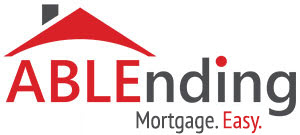Filing Bankruptcy and New FHA Loans in California
Today’s economy isn’t the easiest one in which to live. Many people have succumbed to it, too, filing bankruptcy in order to stay afloat. And, despite the trouble and heartache that this might cause, the same people hope to start over with new FHA loans.
Fortunately, the FHA doesn’t count you out after filing, but you also can’t re-apply right away: there’s a waiting period depending on the type of bankruptcy you declared.
Perhaps you filed for Chapter 7 Bankruptcy in California. If so, mark your calendar on the two-year anniversary of your bankruptcy discharge date, as this is the day on which you are eligible to re-apply. In order to ensure your candidacy, you must restore your credit and have all of your payments in on time for the two years leading up to your application; you also have to submit a full explanation as to why you filed. The two-year waiting period might change, though — and some banks require three years or more — so check with yours to be sure of your status.
As for those who have filed Chapter 13 Bankruptcy, you only have to wait a minimum of one year to submit a second application, and many of the requirements are the same as those who filed for Chapter 7. You’ll most likely be in the midst of completing your Chapter 13 re-payment plan if you apply after one year, so all of your payments will have to be on time and verified for that time period.
You’ll also have to show that you have good credit, a steady employment history, and other qualifications. Your court trustee will have to submit a written approval, and you have to write an explanation as to why you filed in the first place. If all of this is done satisfactorily, you could have another FHA-backed mortgage on your hands.
Perhaps your situation falls outside of these two scenarios. If so, check out the FHA Back To Work Program, which will be available until the end of September 2016. Through this program, you can compensate for situations out of your control that led you to file for bankruptcy, including divorce, loss of income, an adjustable-rate mortgage, and more.
An FHA-backed loan comes with a slightly higher income rate than a traditional mortgage, but it’s a great option if you’re ready to get back on your feet. Even better, most who have filed bankruptcy will be eligible for an FHA mortgage and the accompanying rates if they take care to follow the guidelines leading up to filing.
